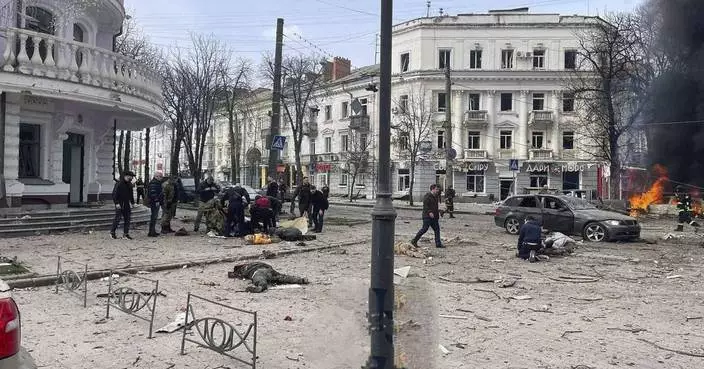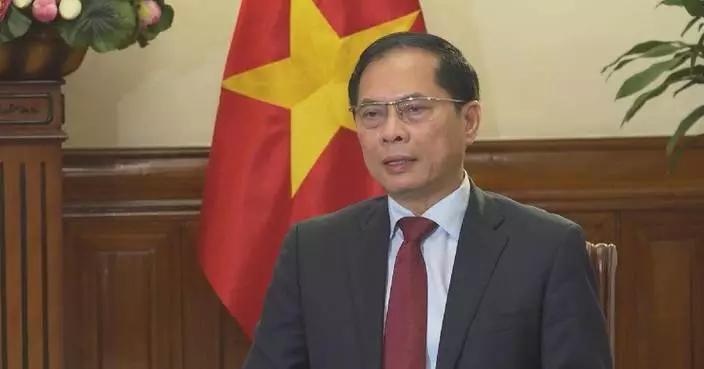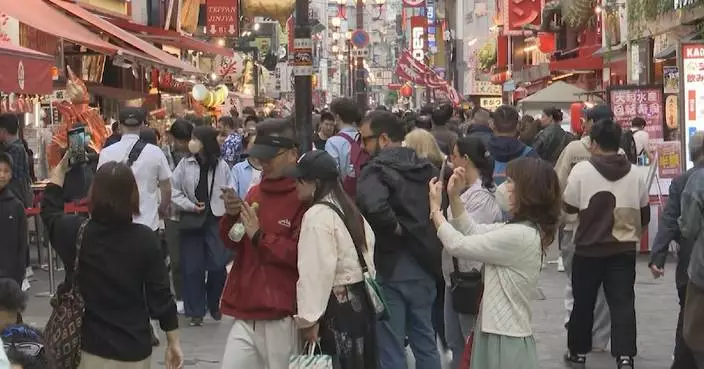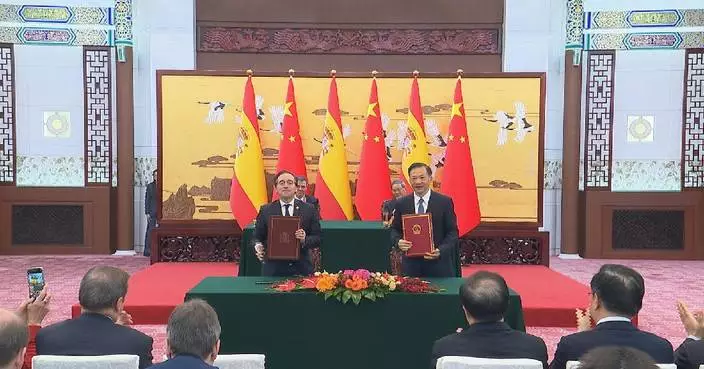MANCHESTER, England (AP) — England cricket great James Anderson extended his playing career on Monday by signing a one-year contract with Lancashire.
It will be the fast bowler's 25th first-class season.
The 42-year-old Anderson is England's all-time leading wicket-taker with 704 — making him third all-time behind Australia great Shane Warne (708) and Sri Lanka spin ace Muttiah Muralitharan (800) — and retired from the international game last July.
“I am incredibly excited to sign this contract with Lancashire and resume playing professional cricket again next season," he said. “I have been working hard on keeping my fitness levels high and continuing to bowl regularly during my time as a coach with England throughout the winter, with the aim of being able to hit the ground running when the county season starts in April.”
Anderson made his debut for Lancs in 2001. The club said he signed an initial season-long deal to play in the County Championship and English Twenty20 competitions.
Anderson, who is known for his control and skill, looks set to add to his career haul of 1,126 first-class wickets. He has best match figures of 11 wickets for 71 runs and a best innings performance of 7-19.
AP cricket: https://apnews.com/hub/cricket

FILE - England's James Anderson warms up before bowling in the nets during a practice session on the eve of his team's fifth cricket test match against India in Dharamshala, India, March 6, 2024. (AP Photo/Ashwini Bhatia, File)
LONDON (AP) — Chinese companies will have to clear a “high trust bar” when investing in key sectors in the U.K., the country's business secretary said Sunday, a day after he took effective control of Britain’s last remaining factory that makes steel from scratch from its Chinese owners.
Jonathan Reynolds said Jingye Group, which has owned British Steel since 2020, had not been negotiating “in good faith” with the government in recent months over the future of the heavily loss-making steel works in Scunthorpe in the north of England.
Reynolds said it had become clear on Thursday that Jingye would not accept any financial offer from the government and that it was the company's intention to close the blast furnaces “come what may,” while keeping the more profitable steel mill operations and supplying them from China.
In an interview with Sky News on Sunday, he declined to accuse the company of deliberately sabotaging the business at the behest of the Chinese Communist Party, but did accept that there is now a “high trust bar” to bringing Chinese investment into the U.K.
“I personally wouldn't bring a Chinese company into our steel sector,” he said. “I think steel is a very sensitive area.”
Prime Minister Keir Starmer summoned lawmakers back to Parliament on Saturday to back a bill primarily aimed at blocking Jingye from closing the two blast furnaces. The bill, which is now law, gives Reynolds the power to direct British Steel's board and workforce, ensure its 3,000 workers get paid and order the raw materials necessary to keep the blast furnaces running.
The British government had been under pressure to act after Jingye’s recent decision to cancel orders for the iron pellets used in the blast furnaces. Without them and other raw materials, such as coking coal, the furnaces would likely have to shut for good, potentially within days, as they are extremely difficult and expensive to restart once cooled.
That would mean the U.K., which in the late 19th century was the world’s steelmaking powerhouse, would be the only country in the Group of Seven industrial nations without the capacity to make its own steel from scratch rather than from recycled material, which use greener electric arc furnaces rather than blast furnaces.
The repercussions would be huge for industries like construction, defense and rail and make the country dependent on foreign sources for so-called virgin steel, a vulnerability that lawmakers from all political parties balked at.
In a separate interview with the BBC, Reynolds declined to give a full guarantee that British Steel will be able to secure enough raw materials in time to keep the blast furnaces going.
He said he would not “make my situation or the nation’s situation more difficult” by commenting on specific commercial details.
“If we hadn’t acted, the blast furnaces were gone, steel production in the U.K., primary steel producing, would have gone," he said. "So we’ve given ourselves the opportunity, we are in control of the site, my officials are on site right now to give us a chance to do that.”
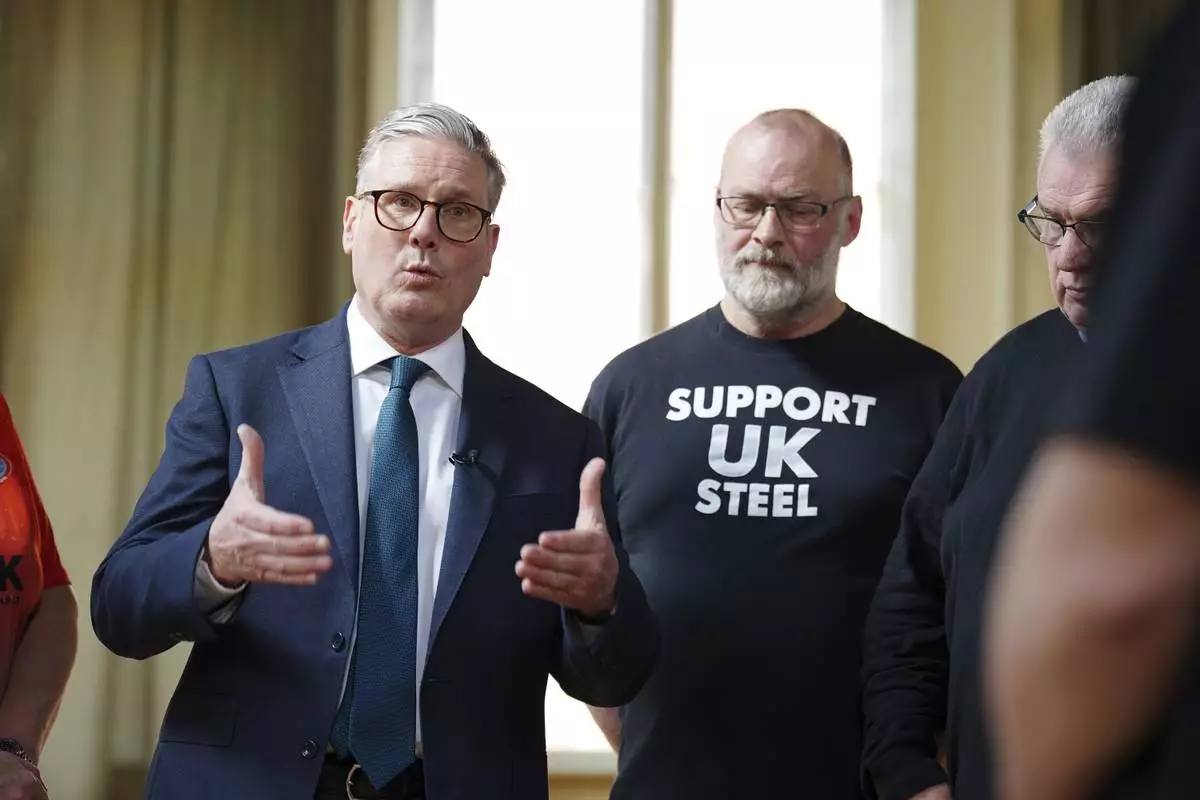
Britain's Prime Minister Keir Starmer speaks during a visit to meet British Steel workers in Appleby Village Hall near Scunthorpe, Lincolnshire, Saturday April 12, 2025. (Peter Byrne/Pool Photo via AP)
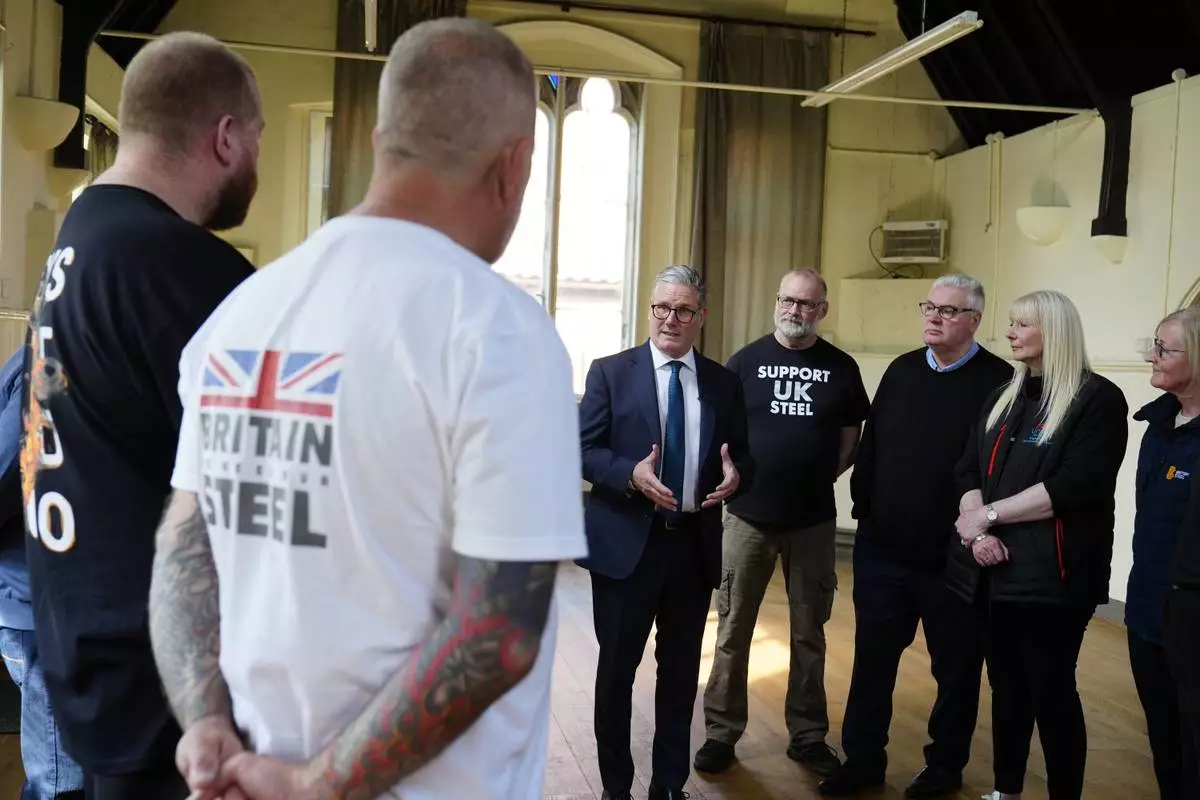
Britain's Prime Minister Keir Starmer speaks during a visit to meet British Steel workers in Appleby Village Hall near Scunthorpe, Lincolnshire, Saturday April 12, 2025. (Peter Byrne/Pool Photo via AP)
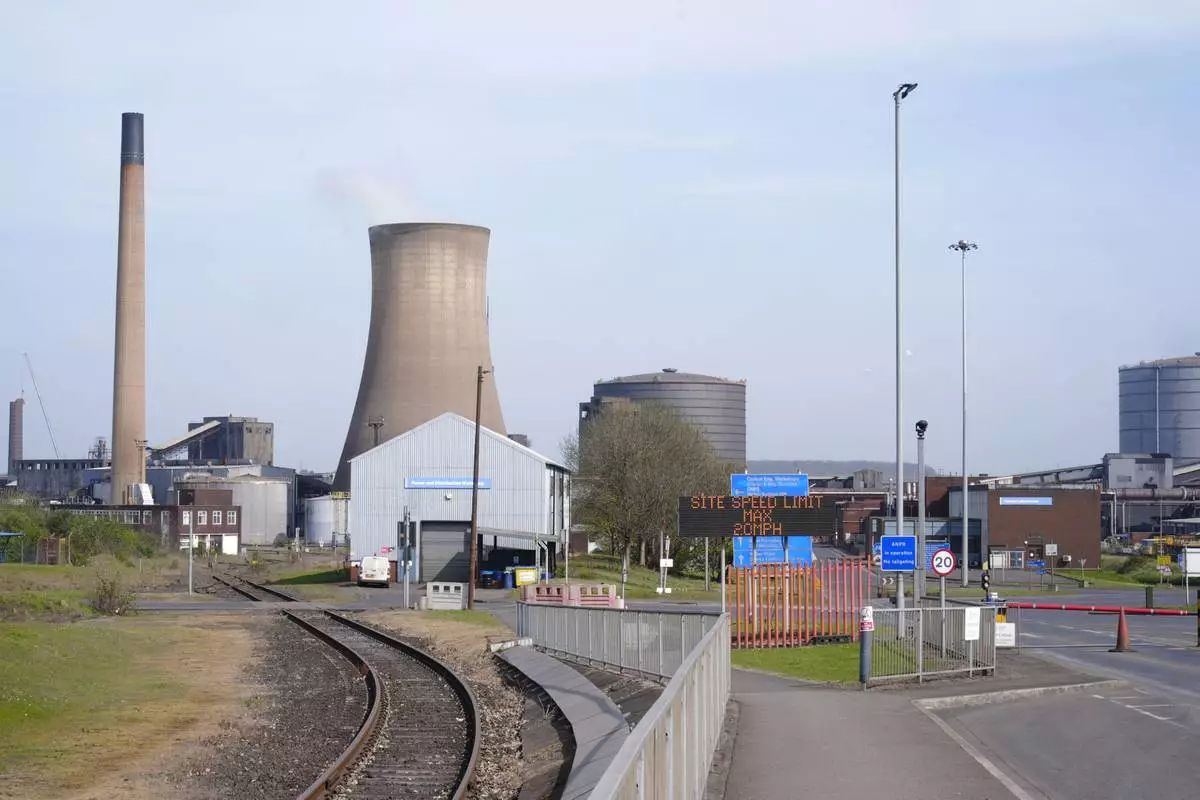
A general view of British Steel in Scunthorpe, Lincolnshire, Saturday April 12, 2025. (Peter Byrne/PA via AP)
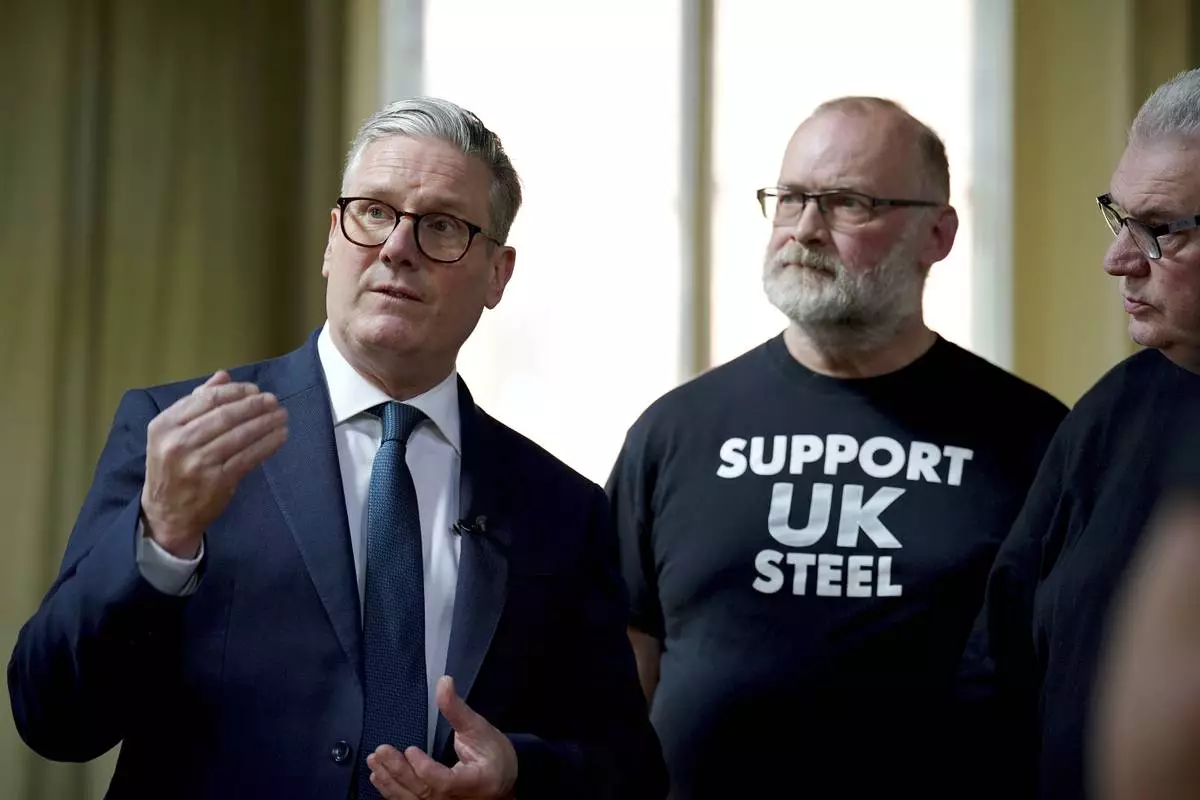
Britain's Prime Minister Keir Starmer speaks during a visit to meet British Steel workers in Appleby Village Hall near Scunthorpe, Lincolnshire, Saturday April 12, 2025. (Peter Byrne/Pool Photo via AP)
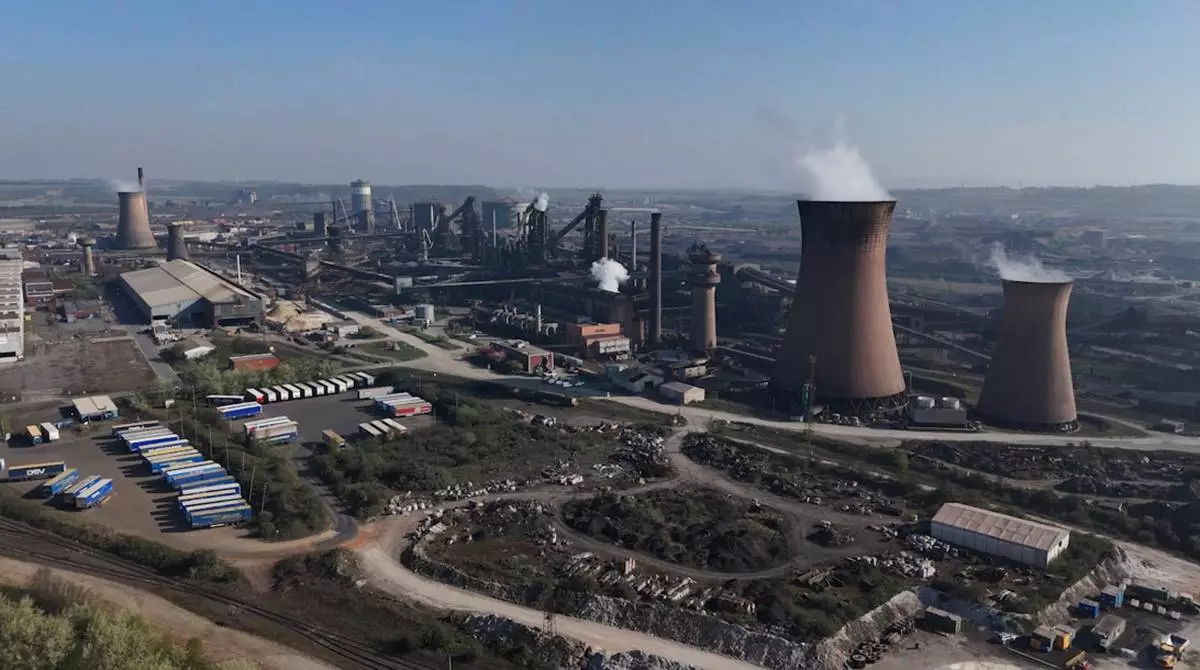
This screen grab from PA video shows a view of the British Steel plant in Scunthorpe, Lincolnshire, Saturday April 12, 2025. (Jamie Lashmar/PA via AP)










